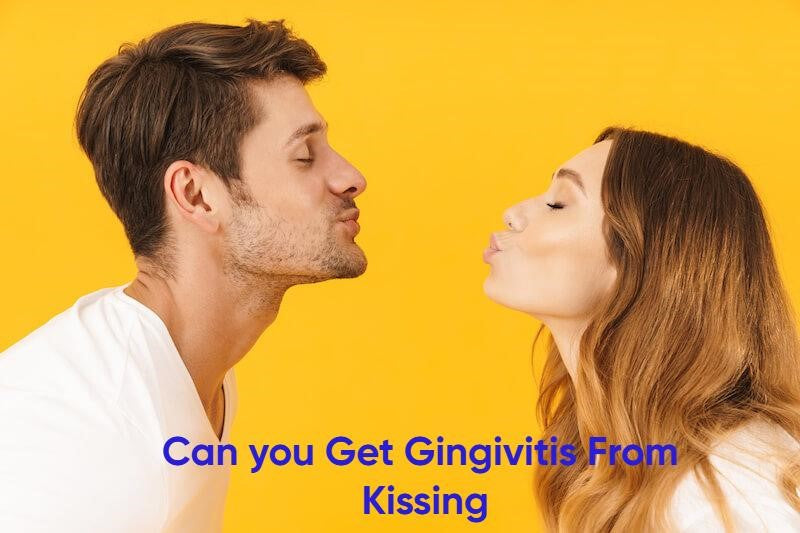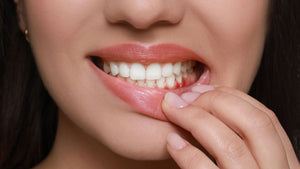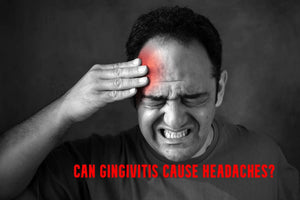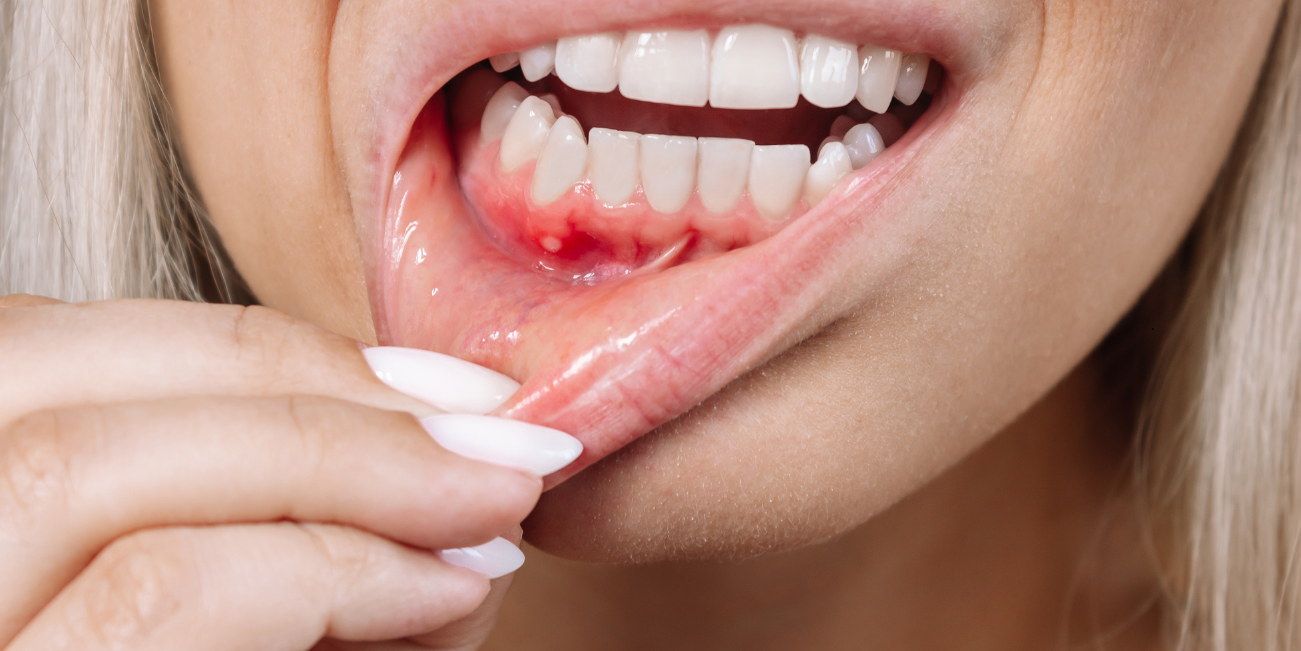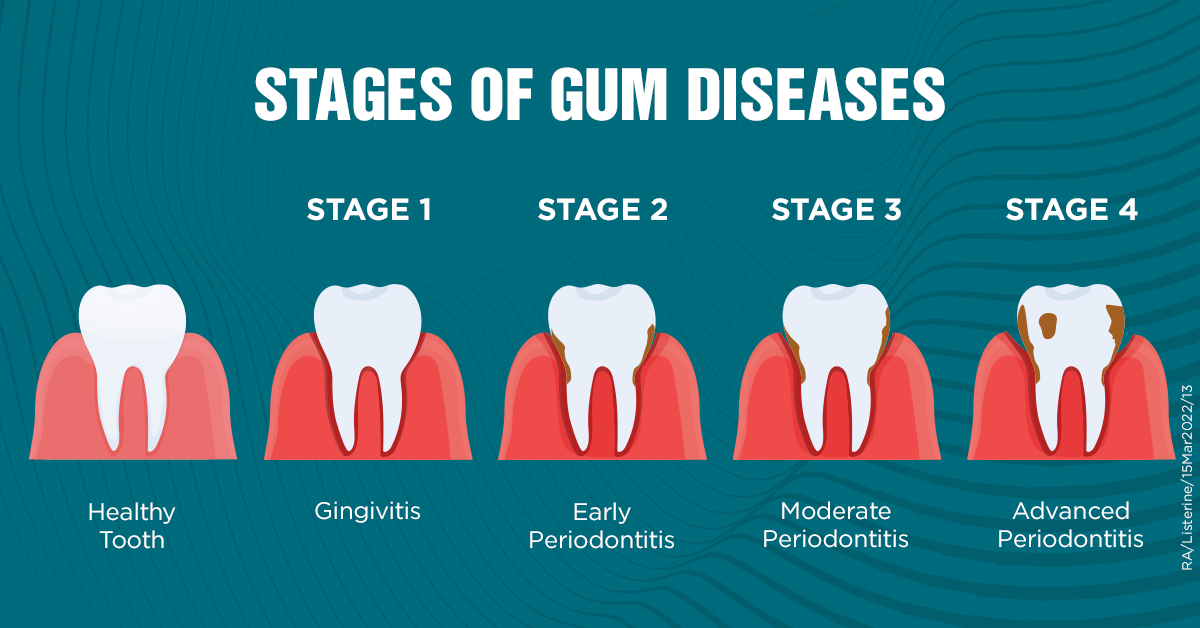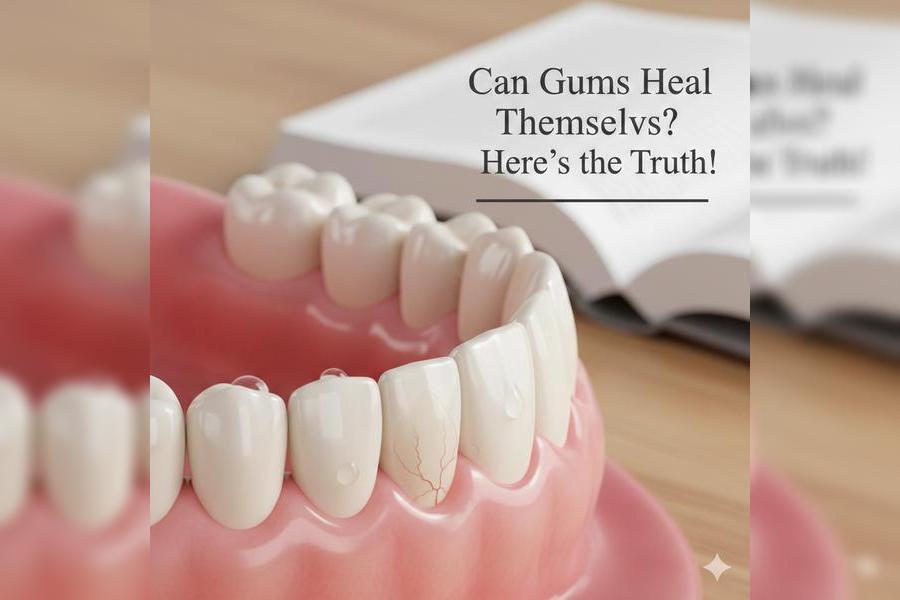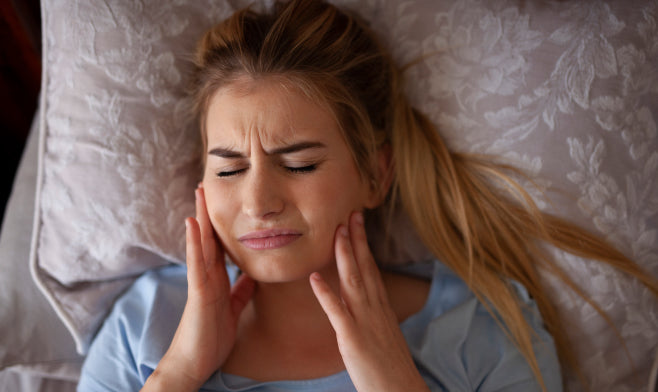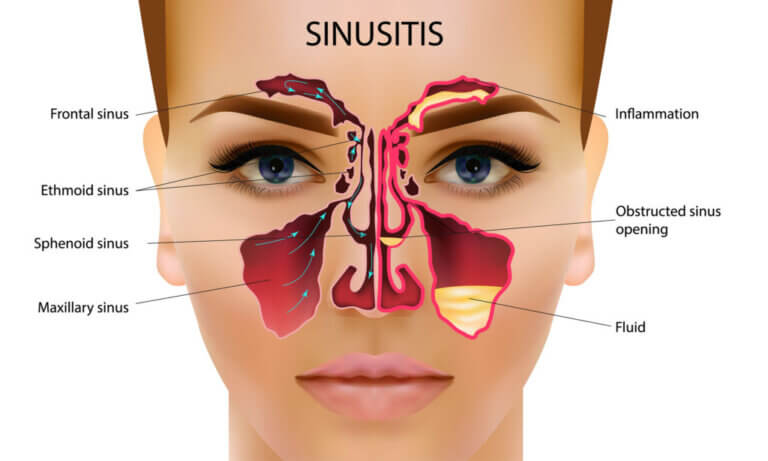We don’t usually think about it, but our mouths are bacterial playgrounds. There are over 700 species of bacteria in the average human mouth. Most of them are harmless. Some are even helpful. But when certain kinds get too comfortable - like Porphyromonas gingivalis or Treponema denticola; they stir up trouble, especially around your gums.
So here’s the big question: Can you get gingivitis from kissing? If your partner has bleeding gums, inflammation, or bad breath, is it possible those symptoms can make their way over to you through a kiss?
Yes, it’s not just possible - it’s very real. Let’s break it all down.
What Is Gingivitis and Why Should You Care?
Gingivitis is an early-stage gum disease that causes redness, swelling, and bleeding of the gums. It develops when plaque, a sticky film of bacteria - builds up on your teeth and isn’t removed properly.
If you ignore it, gingivitis can progress to periodontitis, a more serious form of gum disease that leads to tooth loss.
The stakes are high, even if it starts off subtly.
The signs are:
- Swollen or puffy gums
- Bleeding when you brush or floss
- Tenderness when eating
- Persistent bad breath
And yes, untreated gingivitis isn’t just a mouth problem. It’s linked to heart disease, diabetes, and even respiratory illness.
The Real Deal: Can You Get Gingivitis from Kissing?
Now to the heart of it: Can you get gingivitis from kissing??
You can. Because gingivitis is caused by bacteria that live in saliva and on dental surfaces, it’s definitely transmissible through kissing. This isn’t a myth. It’s microbiology.
In particular, if someone has active gum inflammation and bleeding, those oral pathogens are swimming around in their mouth. A long, deep kiss provides an easy pathway for these microorganisms to make their way into your oral microbiome.
One 2014 Dutch study published in Microbiome Journal found that couples who kiss frequently share more than just affection - they also share oral bacteria profiles. After a 10-second kiss, up to 80 million bacteria can transfer from one mouth to the other.
So yes, you can get gingivitis from kissing someone who has it.

How Oral Bacteria Travel From One Mouth to Another
Oral bacteria don’t just float freely through the air like pollen. They live in plaque, saliva, and mucous membranes.
When you kiss someone, especially deeply or for extended periods, you’re not just sharing affection - you’re sharing your unique microbiome.
Saliva: The Perfect Vehicle for Transmission
Saliva is like a bacterial delivery van. It's loaded with microorganisms - some beneficial, others harmful. When two people engage in kissing, their saliva blends together, creating a microbe exchange that may last for hours inside the mouth. If one person is dealing with gum disease, chances are high that their saliva contains Porphyromonas gingivalis, a key bacterium responsible for gingivitis. Once this pathogen enters the partner’s mouth, it may find ideal conditions to settle in and multiply.
Plaque Bacteria Are Sticky - Literally
What makes this worse is that oral bacteria, especially those involved in gum disease, love to cling to plaque. When someone doesn't brush thoroughly, these bacteria accumulate along the gum line. Once introduced into another person’s mouth - perhaps someone who isn’t brushing and flossing regularly, they can attach themselves to existing plaque and begin their invasion.
Can You Get Gingivitis from Kissing an Infected Partner?
Yes, in particular, when you do not take good care of your teeth and oral hygiene. When your gums are already inflamed or weakened, you are basically leaving a red carpet for the invaders. Your mouth becomes prone to bacterial colonization when you have a weak immune system, a dry mouth, a smoking habit, and even through stress.
Transfer Isn’t Always One-Way
And the twist to it is that the exchange of oral bacteria is a two-way street. Unless you and your partner are both in good health, kissing might cause a two-way transfer and end up passing on bacteria that their system is also unfamiliar with. Both may break the microbial balance of each other by this interchange.
So if you’re asking again, "Can you get gingivitis from kissing?" - the answer remains yes. It is no myth, it is microbial. It is like an exchange of ecosystems wherein each has its balance and the other does not, where that balance can go in a wrong direction.
Saliva Sharing And Other Habits That Spread Gum Disease
Can You Get Gingivitis from Kissing - Of course. Here are some everyday activities that may put you at risk:
Common Activities That Can Transmit Gingivitis-Causing Bacteria
|
Activity |
Risk Level |
Bacteria Spread Explanation |
|
Kissing |
High |
Direct saliva exchange introduces pathogens |
|
Sharing toothbrushes |
Very High |
Transfers plaque and bacteria directly
|
|
Using the same cutlery (unwashed) |
Medium |
Possible saliva residue |
|
Blowing on food (adult to child) |
Low-Medium |
Bacteria travels through droplets |
|
Drinking from same bottle |
Medium |
Especially with active gum infection present |
While kissing is the most obvious route, it's worth noting how common saliva-sharing habits can transfer harmful microbes, especially in families and relationships.
Can You Get Gingivitis From Kissing Every Single Time
Not necessarily. You could kiss someone with gingivitis and never develop it. It depends on your oral hygiene, immune system, and existing gum health.
If your body is strong and you maintain a solid dental care routine, you may fend off new bacterial colonies. But if you have:
- Poor brushing habits
- Skipped flossing
- Unhealthy diet
- Or existing gum irritation
Then your risk shoots up.
Also, people with dry mouth (due to medications or dehydration) are more vulnerable because saliva is your body’s natural defense against bacterial overgrowth.
Signs That You Might Already Have Gingivitis
Worried that you may have already picked up a bacterial hitchhiker from a kiss? Here are the most common signs of gingivitis, broken down:
1. Bleeding Gums
This is usually the first warning. If your gums bleed when brushing or flossing, they’re inflamed.
2. Puffy, Swollen Gums
Healthy gums should be pink and firm. Gingivitis turns them red and spongy.
3. Persistent Bad Breath
Chronic halitosis can indicate bacterial activity beneath the gum line.
4. Gum Discoloration
Dark red, purplish, or overly shiny gums may signal infection.
5. Gum Sensitivity
Pain or discomfort while brushing or eating? That’s a red flag.
6. Receding Gums
When gums pull back from the teeth, exposing more of the tooth or root, it’s often due to gum disease.
If you’ve noticed one or more of these symptoms, it might not just be bad brushing - you might have caught bacteria from someone else.
How to Protect Yourself Without Being Paranoid
Let’s be real: You can’t live in a bubble. But here’s how to protect your gums without avoiding intimacy
- Brush twice daily with fluoride toothpaste
- Floss at least once a day
- Use antiseptic mouthwash to reduce bacterial load
- Avoid sharing oral tools like toothbrushes or mouthguards
- Encourage your partner to take care of their oral health too
And, if you already have signs of gum irritation, it’s time to step up your game.
Why Natural Prevention Matters
The dental aisle is full of options, but most are loaded with alcohol or synthetic chemicals. Increasingly, people are turning to natural formulations that heal gently and effectively.
Essential oils like neem and clove have long been used in Ayurvedic and traditional medicine to combat inflammation and bacteria. These oils are especially powerful when combined with nourishing base oils like Omega 3 and 9. This blend not only helps reduce plaque-causing bacteria, but also soothes irritation and strengthens gum tissue.
If you're experiencing bleeding gums, tooth pain, or sensitivity to hot and cold, it could be your body telling you it needs more than just a minty mouthwash.
Choosing the Right Natural Gum Solution
A natural oral health formula should go beyond breath-freshening. It should address:
- Inflammation
- Bacterial overgrowth
- Tissue regeneration
One powerful solution that we provide, combines Omega 3 and 9 oils with neem and clove essential oils. Used daily, it doesn’t just stop gingivitis from worsening - it helps reverse early damage, promotes circulation, and supports overall gum wellness.
If you're looking for the best natural gum disease cure, try The Goodbye Company’s Gum Disease Solution. You’ll love it!
FAQs
Can you get gingivitis from kissing someone who has it?
Yes. Kissing can transmit the bacteria that cause gingivitis, especially if one partner has active gum disease and poor oral hygiene.
Is gingivitis contagious like a cold?
Not in the airborne sense, but yes, it’s transmissible through saliva and close contact.
Can kids get gingivitis from their parents?
Yes, especially if parents share utensils or kiss babies on the mouth with untreated gum infections.
How soon can gingivitis develop after exposure?
Symptoms may show within days to weeks if poor oral hygiene continues after exposure.
How do I stop gingivitis from spreading?
Practice solid oral hygiene, avoid sharing oral tools, and use natural antimicrobial products to reduce bacterial load.
Outlook
So long story short, “can you get gingivitis from kissing”? - Yes, you can.
A kiss is a beautiful, intimate gesture - but like any form of connection, it comes with responsibilities. If you or your partner have signs of gingivitis, don’t panic. Just act.
Brush. Floss. Rinse. And if you’re looking for a safe, effective, and natural solution to protect your gums and reverse early gum damage, consider introducing a botanical, oil-based gum solution formula into your routine. Highly recommended!
Your mouth deserves the same level of care as the rest of your body. And your gums? They’re not just pink decorations. They’re your first line of defense.
So kiss wisely, and clean with intention.


